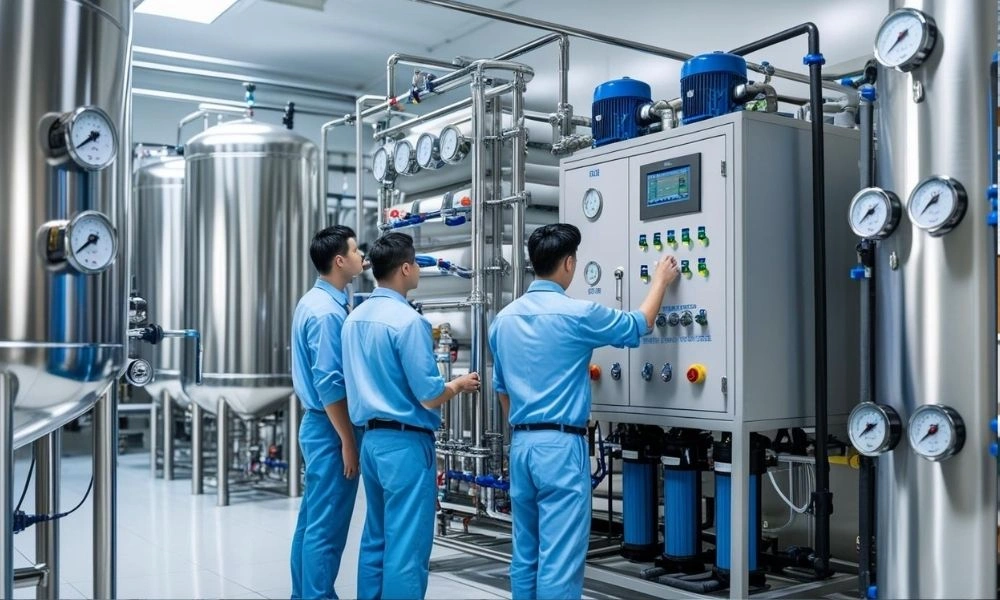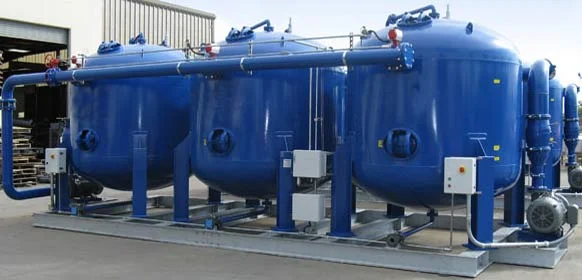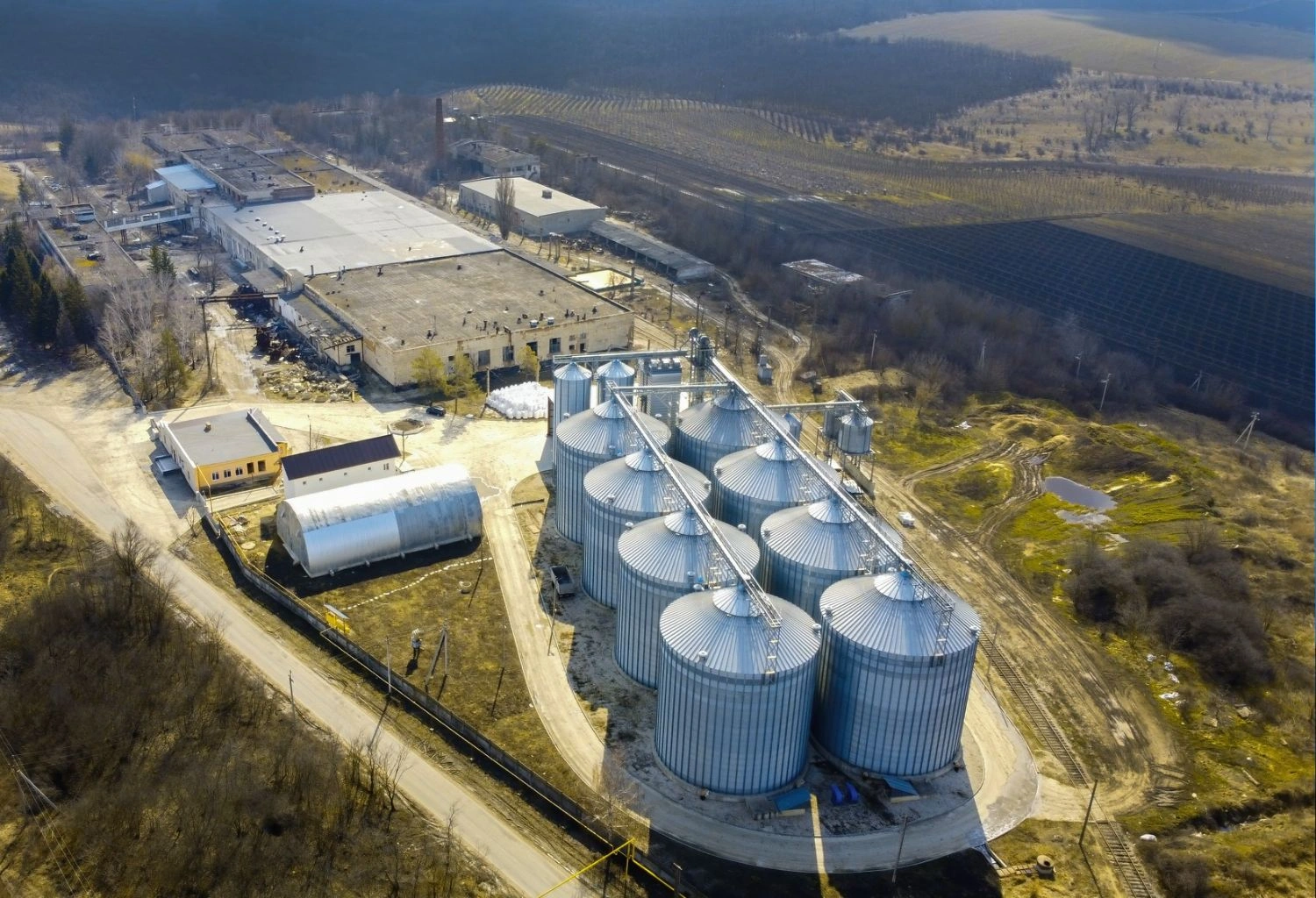RO water plants provide clean, safe, and reliable drinking water across Pakistan. WCSP offers custom-designed systems for homes, schools, hospitals, and industries. Their use of advanced technology and nationwide service makes them one of the top RO plant providers in the country. From water testing to installation and maintenance, WCSP delivers complete water purification solutions.
Water Softening Plant
Why RO Water Plants Are Very Important for Pakistan?
Pure drinking water is increasingly difficult to find in most areas of Pakistan. Groundwater tends to be laden with heavy metals, bacteria, and excess salts. Tap water in cities may not be safe, and bottled water isn’t always reliable or within budget. That’s where the role of RO (Reverse Osmosis) water plants begins — they eliminate 95–99% of dangerous contaminants, providing safe, clean, and terrific-tasting water for households, offices, factories, and entire communities.RO systems aren’t only for health — they’re an investment in quality of life. Whether a family, apartment complex, or textile factory, the proper RO system provides consistent access to clean water at a low cost in maintenance.
What Is an RO Water Plant and How Does It Work
An RO water facility makes use of semi-permeable membranes to remove dissolved salts, heavy metals, viruses, and bacteria from impure water. The process is achieved by subjecting impure water to pressure, thereby pushing it through these semi-permeable membranes. Pure water flows through them, whereas impurities are washed away.
Main Parts of an RO System:
- Pre-filters – Take out dust, rust, and chlorine
- RO membrane – Removes minute contaminants (such as arsenic, fluoride, lead)
- Post-carbon filter – Improves taste and smell
- UV sterilizer (optional) – Eliminates bacteria and viruses
The end result is safe drinking, cooking, and industrial water.
Where RO Plants Are Installed in Pakistan?
In the past few years, the demand for RO plants has skyrocketed in:
Homes and apartments
- Schools and colleges
- Factories (textile, pharma, food & beverage)
- Hospitals and laboratories
- Housing societies and water ATMs
Water Care Services Pakistan (WCSP) has provided RO water plants to all these environments, with tailor-made systems for various water quality, flow rate, and space needs.
Demineralization Water System
What Constitutes an Excellent RO Water Plant?
Not all RO equipment is created equally. The finest RO plants have the following features:
Long-Lasting Parts
Imported membranes, high-pressure pumps, and anti-corrosion frames guarantee extended lifespan.
High Water Recovery Rate
Top systems reclaim up to 70% of input water, cutting waste and water costs.
TDS Control
A healthy RO plant can keep Total Dissolved Solids (TDS) in water at healthy levels, neither too salty nor too mineral-deprived.
Easy Maintenance
Choose systems with simple control panels, easy filter-change access, and real-time monitoring capabilities.
WCSP’s Approach to Building the Best RO Water Plants in Pakistan
WCSP employs cutting-edge engineering to deliver custom-designed RO systems. Their designs are made to suit local water quality conditions — be it Sindh’s brackish water or Punjab’s hard water.Systems come in various capacities, ranging from 100 liters/hour to more than 100,000 liters/day, catering to a small house or an industrial plant on an enormous scale.
WCSP also offers:
- Pre-installation water testing
- Design and layout planning
- On-site installation
- After-sales service with AMC (Annual Maintenance Contracts)
Top RO System Models Available with WCSP
1. Residential RO Systems
Best suited for residential homes and small offices. They are compact and installable under the counter or on the wall and have 5–7 stages of purification.
2. Small commercial RO Plants
Ideal for use in schools, clinics, and small businesses. They yield between 100–1000 liters per hour and are simple to install within small areas.
3. Industrial RO Plants
These are industrial-scale systems designed for factories and housing societies. With over 10,000 LPH capacities, they have sophisticated monitoring and chemical dosing capabilities.
4. Containerized RO Plants
Portable RO plants constructed within shipping containers. These are perfect for construction sites, remote locations, or emergency relief.
How to Select the Proper RO Water Plant for Your Requirement?
This depends on your:
- Water source (borewell, canal, tap, etc.)
- Contamination level (TDS, bacteria, metals)
- Usage volume (family, factory, community)
Available space and budget
WCSP provides free water testing and site evaluation to assist you in making the correct choice.
RO Plant Maintenance: What to Know
Filter Changes
Pre-filters need to be replaced every 3–6 months, and membranes every 1–2 years based on usage.
Cleaning and Sanitization
Tanks and piping need to be cleaned every 6–12 months to prevent bacterial growth.
Regular Testing
TDS levels and pressure gauges need to be checked monthly to ensure water quality consistency.
With WCSP’s AMC plans, all of this is taken care of by trained technicians, giving you peace of mind.
Conclusion
RO water plants are an essential component of having clean, safe water in Pakistan’s homes, industries, and communities. WCSP’s experience, technology, and service have made them a name one can trust in the industry. From a home unit to a 100,000-liter plant, WCSP provides reliable and sustainable solutions with professional support.
Frequently Asked Questions (FAQs)
1. Why are RO water plants important in Pakistan?
RO plants eliminate harmful salts, metals, and pathogens from water, ensuring clean, safe drinking water where municipal or underground sources are unsafe or contaminated.
2. What does an RO water plant do?
It uses pressure and a semi-permeable membrane to purify water by removing up to 99% of dissolved salts, bacteria, heavy metals, and harmful chemical contaminants.
3. Where are RO water plants used in Pakistan?
RO plants are widely used in homes, schools, hospitals, factories, apartments, and commercial areas where clean water is needed for drinking, cooking, or industrial processes.
4. What are the key components of an RO system?
The system includes pre-filters, RO membrane, post-carbon filter, UV sterilizer, and control panel, working together to remove impurities, enhance taste, and ensure water safety.
5. How often should RO filters and membranes be changed?
Pre-filters require replacement every 3–6 months. Membranes usually last 1–2 years depending on usage, source water quality, and maintenance frequency for optimal performance.
6. What RO plant capacities does WCSP offer?
WCSP offers RO systems ranging from 100 liters per hour for homes to over 100,000 liters daily for large industries, hospitals, and housing societies.
7. Why choose WCSP’s RO water plants in Pakistan?
WCSP provides ISO-certified, energy-efficient systems tailored to Pakistan’s water conditions, plus full services including testing, installation, AMC support, and emergency repairs.
8. Can RO-purified water be used for daily needs?
Yes, it’s suitable for drinking, cooking, and cleaning. Industries use it in boilers, cooling towers, and production lines, helping cut contamination and maintenance costs.
9. Are RO plants cost-effective for long-term use?
Yes, they reduce bottled water purchases, prevent appliance damage, lower health risks, and with WCSP’s energy-saving designs, offer excellent return on investment over time.
10. How do I select the right RO system?
Consider your daily water usage, contamination type, source, and budget. WCSP offers free site assessments and water analysis to suggest the perfect customized solution.



